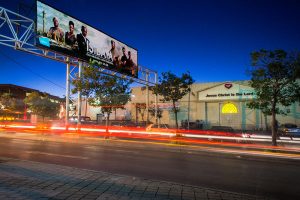Completely disregarding the "single story" of history which tries to contain our memories and thought of our world. Having entirely no room for the "superiority VS inferiority" which again is one of the capitalist and consumerist cultures which have been imbedded into social structures.
i have become very weary of how the beneficiaries of the past are still trying in so many ways to exert their influence and show off their power through material gains.
Our outcry that we where never given time to construct our own narratives and to show the stories from our point of view. Liberals never afford us time nor the space to grieve.
Majority of countries which were affected by colonial rule haven't actually been totally left alone. The stigma of that period has been living throughout even for us the so called "Born Frees" as we are labelled in Republic South Africa were heavily influenced by this stigma.
Through racial slurs or perpetrated stereotypes, cultural appropriation we have in some way all seen in post colonial era resistance.
 2017 advert.
2017 advert.
This kind of images are problematic and it has caused stir. Although the they company has come out to apologies. It show us that we haven fully recovered from our past, it also puts in question the role in which capitalism plays on society.
I live in a country that has no official name as of yet because we are at the Southern point of Africa. ( South Africa) what dose this say about the control?
Who is benefiting from this: "The Union of South Africa was formed on 31 May 1910 as a parliamentary union of the four self-governing British colonies: the Cape of Good Hope Province (Cape Province; previously Cape Colony), Natal Province (Natal Colony), the Orange Free State Province (Oranje Vrij Staat/Orange River Colony) and the Transvaal Province (Zuid Afrikaansche Republiek/Transvaal Colony). The Union came to an end in 1961with a new constitution and became the "Republic of South Africa".
(http://www.nationsonline.org/oneworld/historical_countrynames.htm)
I am interested in this because i now feel like these are the stigmas which are still left. How can i as a photographer conceptualise and challenge this ideas?
As new breed of artist how can our narratives change this and where do we begun to have alternative voices which aren't influenced by the norm and can give new meaning.
What is the role of the globalisation in this and how is it depriving the indigenous their right to express and realise their own identity?
How is subculture became a more prominent voice the the original cultures and traditions?



Hi Ushmita,
Thanks for the comments, i would firstly like to say that a lot of people in S.A have lost a sense of the identity. The has been a lot of writing and engagement by critical minded people but the is still a lot of work to be done for the citizens who aren’t necessarily part of academia or the arts.
My question is how do i provide access and hear their concerns in this matter
Thank you for publishing that ad by ‘Dove’. It did cause a big stir in the united States, and the company withdrew it an apologised. It doesn’t matter. The ad was there, it was created and it was published. And we looked at it with incredulous eyes. It was shocking and shameful. And it was such a testament to the persistence not only of stereotypes, but of claims of “This is preferable to that…”
The questions you pose at the end of your piece are extremely important! You have given expression to the most important challenges for young artists today. I hope you will work on those for the Building Bridges exhibitions…
Hi Grazia
Thanks for the comment, my main aim is to use those questions as a starting point for this new project that i would like to address. I think they give me more clarity and can provide me with understanding with whats happening around me
Hello Nathi,
Just like Ushmita, I must confess that I had no knowledge about the history behind South Africa’s name. Thank you for bringing this to the forefront. It’s clear the ramifications colonization has on a country, it’s citizens and the rich cultural, social and political history and future. Comparably, in India, several cities were given english names by the British as a mark of subjugation of states. We have witnessed (over the past few decades) the official changing of city names to rid their previous names of it’s colonial influence – to remove all traces of the British rule in India. For example, Bombay being changed to Mumbai, Madras being changed to Chennai, Calcutta to Kolkata, Bangalore to Bengaluru etc. Initially, these changes were made over nationalistic reasons. However, lately, some of those reasons became political as political parties want to gain a potential vote bank by giving cities a more ‘indianized’ name. I won’t say that these were necessary or unnecessary changes, since it is a matter of ideologies.
Nathi I completely agree with what you are saying. Racial stereotyping, loss of indigenous identity due to colonization, image and body shaming, these are some extremely pertinent points you have raised in your posts. But I must confess and apologise for the fact that I have never thought about the name /namelessness of your country. It just goes to show that even if we are aware and sensitive of certain issues, there are so many more that we remain unaware of. Thank you for bringing this up. This in my mind raises so many questions regarding identity and belonging. Due to colonisation countless people have lost knowledge of their traditional beliefs and way of life, social structures and their language, and as you point out here, even the name of the land of their ancestors. These issues play a big role in helping us define our identity. Without them, people can struggle to form a sense of who they are. In India post-colonial studies and the subaltern has tried to create a critical reading of our modernity. I am sure there an equivalent post-colonial critique of apartheid in your country. It would be great if you could share links to materials regarding the change in consciousness and political discourse of black South Africans.